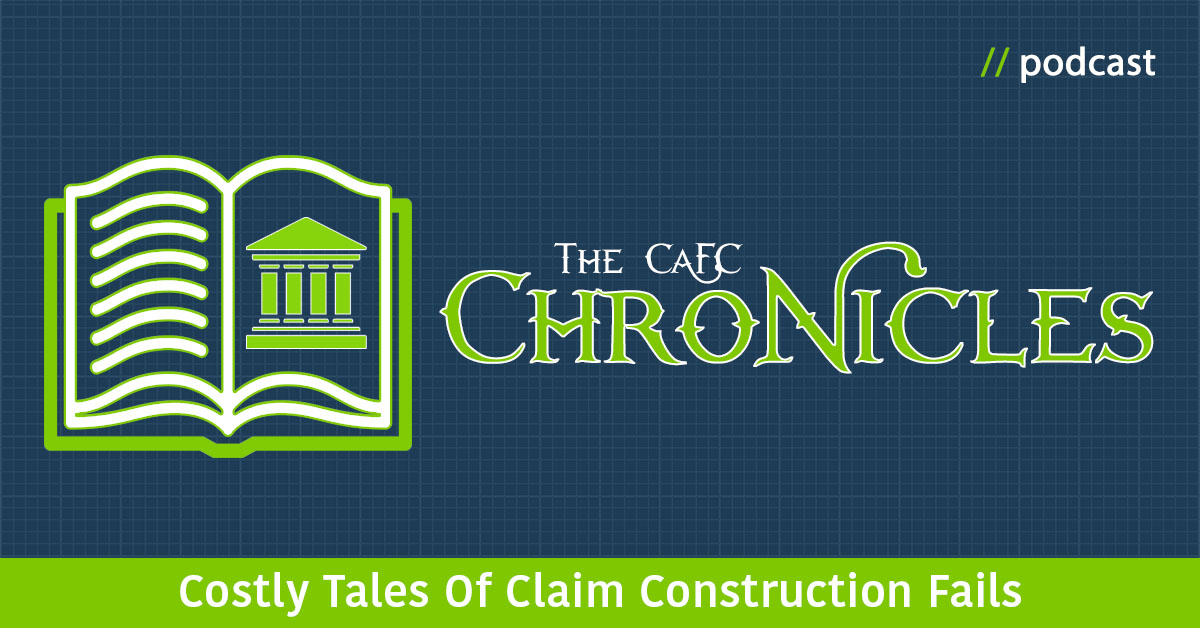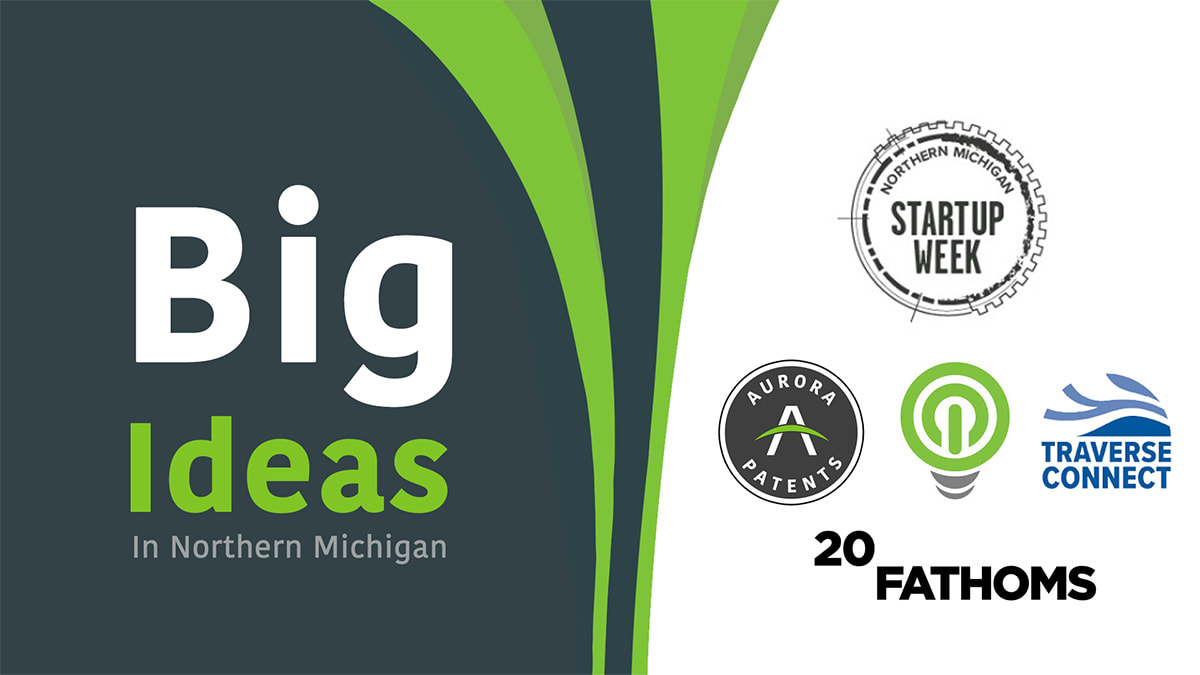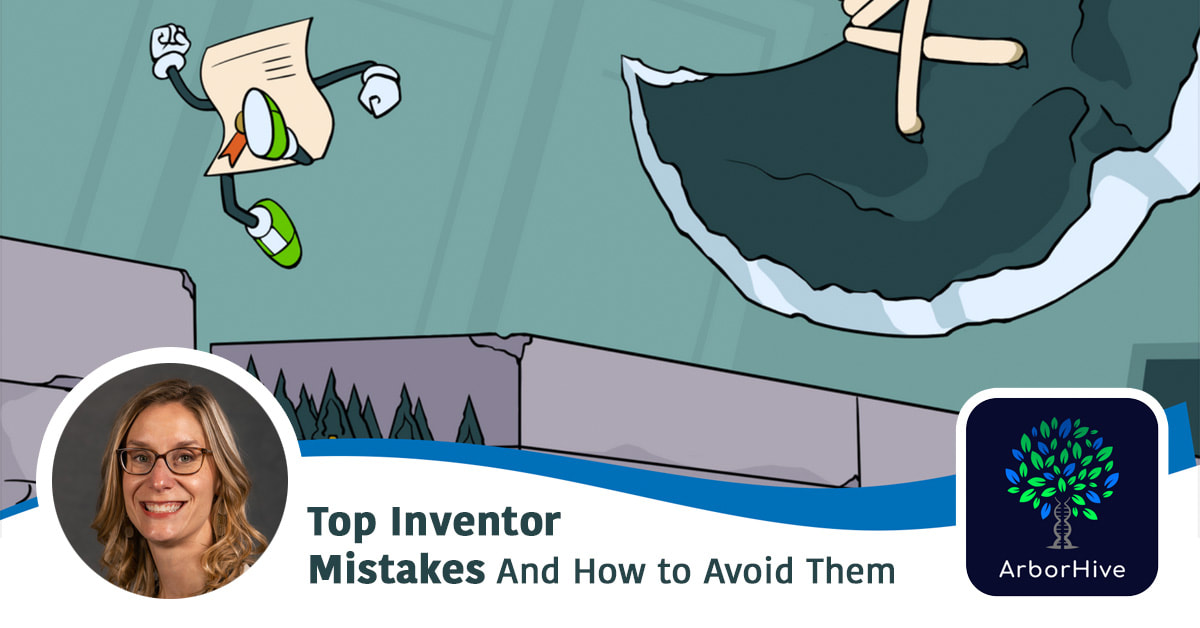|
By: Josh Sloat
Government Grants and Patent Rights Talk
Please join us for the largest physician innovation event of 2024!
We are extremely excited and honored to be presenting alongside an incredible speaker lineup – delivering a talk on Government Grants and IP Rights at the InnovatorMD World Congress 2024, taking place later this week. About the talk. The enormous expense of R&D can be a massive financial hurdle for startups. Federal grants like SBIR and STTR can be a great solution for many. These grants combine to provide over $4 billion annually in support from federal agencies like the National Institutes of Health!!! Despite being a very attractive source of non-diluting capital, they can come with some serious strings attached, particularly for your IP ownership and licensing rights. In this talk, we'll explore these grants and some of their biggest gotchas. InnovatorMD World Congress 2024
The InnovatorMD World Congress event brings together physicians and health tech startups from across the globe for three action-packed days filled with influential speakers, compelling discussions, and opportunities to redefine your career.
Time: July 11, 2024, 8:00 AM PDT – July 13, 2024, 1:00 PM PDT Location: Online via Zoom Discount: Use the code ASHLEY100 to save $100 on your registration. About InnovatorMD
InnovatorMD's mission is to educate clinicians on advances in care delivery models, medical devices, digital health, and pharmaceutical innovation that will help them improve patient care and make their clinical management more efficient, meaningful, and fulfilling. InnovatorMD is composed of a group of physician innovators from various backgrounds with a single vision – to spread physician innovation to the rest of the world and to have a positive impact on patient outcomes and physician wellness while moving the healthcare industry forward. Aurora has been working with this wonderful group on Master Classes, Workshops, and WorldCongress events since 2020!
0 Comments
By: Kristen Hansen
Like George Carlin's Seven Words You Can't Say on TV, there are certain words you shouldn't use in patent applications. The following is meant as a guideline for avoiding the use of certain “patent profanity” terms. Some of the terms are okay to use with a specific intent and with specific implications, but are best to avoid if you do not know how to use them in that manner.
“Patent profanity” refers to the use of certain words that arguably limit the scope of a claim or alter the meaning because they use absolute phrasing or terms. Often these words are found in the specification section of a patent as well as in the prosecution history. Patent Profanity Do's and Don'ts
Describing an aspect of the invention with an absolute term suggests that the invention is not complete without the aspect. Well drafted patent applications should instead include generic language, variations, alternatives, and examples to identify the broadest possible scope of the invention. In practice, you should:
Example Patent Profanity Terms
The tables below are not exhaustive, but serve as concrete examples of terms you should never use, terms you should try to avoid, and terms that can only be used with caution if used correctly. We've also made these tables available in a downloadable format on our resources page.
Never Use These Terms...
Avoid Using These Terms...
Only Use These Terms Correctly...
Patent Profanity Case Law Lessons
There are numerous case studies highlighting the significance of patent profanity:
Go Deeper on Patent Quality
Patent profanity is just one of the many topics pertaining to quality patents that Kristen discussed in her Patently Strategic Podcast episode on quality drafting practices. Check it out below or wherever you listen to podcasts.
By: Josh Sloat
Crafted to Stand the Test of Time
Is your patent a vanity piece of paper for your office wall? Or is it a reliable, defendable, assertable, property right? The difference is often quality.
Is your patent simply a transactional cost and a large pile of legal bills for your startup? Or is it a leverageable asset worthy of attracting precious investment dollars, worth its cost in multiples of valuation? The difference is often quality. Is your patent application only good enough to get through the examination process? Or has it been crafted to stand the tests of time and varied audiences if you later need to assert that document against an infringer, find yourself litigating with it in an Article 3 Court at the hands of a judge and jury, God forbid, end up having to defend its validity at the PTAB, or even needing to use it to block pirated imports at the International Trade Commission? The difference is often quality. As an inventor, you cannot leave this to chance or to blind trust in the wrong professional. You’ve put too much into your innovation to come up short when its life depends on the measure of your patent. In the eyes of the patent office, judges, juries, PTAB admins, ITC officials, and IP-savvy investors, it doesn’t really matter how great, novel, or universe-denting your invention is if it is not properly defined and protected by your patent. The difference is often quality. Quality will be our focus for a good chunk of the remainder of this season. What goes into a quality patent, and where possible, how do you get it without breaking the bank? In this first episode of our quality series, Kristen Hansen and the panel discuss:
Kristen is joined today by our always exceptional group, including:
Mossoff Minute: Patents and the Founders
In this month's Mossoff Minute, in honor of celebrating America’s independence, we’re flashing back to our conversation with Professor Adam Mossoff about why patents exist, how the US system differed from all predecessors, and how the Founders’ notions of the core principles of democracy are inextricably linked with the societal good that comes from innovation and intellectual property protection. We’re also publishing excerpts as short-form videos on Instagram Reels, YouTube Shorts, and TikTok.
How to Listen
Patently Strategic is available on all major podcasting directories, including Apple Podcasts and Spotify. We're also available on 12 other directories including Stitcher, iHeart Radio, and TuneIn, so you should be able to find us wherever you listen to podcasts.
Resources.
To further explore the topics discussed, see the following past episodes and resources:
Related Episodes
Related Reading
Transcripts We're also providing computer-generated transcripts for improved accessibility and additional reference opportunities. Slides For the visual learners out there, we also like to make our presenter slides available for your reference.
Guest post by: Neil Thompson
Picture this: a sleek startup event venue with dimmed lights, a stage, and an audience eagerly awaiting the pitch competition. The air is filled with a mix of excitement and nervous energy. You're a technical founder about to give your pitch. You have some misgivings, though.
All important questions! Consider joining a group to help you answer them.
The Teach The Geek Pitching Society is a group of technical founders who meet to hone their pitches, interact with other founders, and learn from experts that they'll need for their businesses. Investment dollars are hard to come by. Making sure that the pitch is airtight is a significant step towards company success! Learn more about the Society and join the waitlist at teachthegeek.com/pitch. Aurora's own Dr. Ashley Sloat was also recently featured on the Teach the Geek Podcast, where we discussed her leap from academia into the patent world, what patent agents do, and public speaking in the space. Listen and learn more below.
By: Josh Sloat
Inventor Stories Vol. 3
We’ve seen few entrepreneurial success stories that haven’t involved heavy doses of perseverance, grit, observation, and creative problem-solving. Today’s guest possesses these qualities in spades. And while I can’t necessarily recommend some of the more death-defying specifics of his approach … at least not without a lot of “don’t try this at home” fine print :) … I do think that most inventors and aspiring entrepreneurs will benefit immensely from studying our guest's thoughtfully crafted, time-tested, and wildly inventive approaches to innovation and business.
Robert Cameron is the Owner and CEO of Multi Wedge – as well as the inventor of some brilliant products sold under the same name. Multi Wedge non-marring pry tools are designed to pry delicate materials without damage. These are excellent tools for woodworking, electrical wiring, delicate mechanical work, and so much more. Robert’s wedges were recently tested by SpaceEx and used in the manufacturing process of Jet Engines at G.E. Aviation. And of slightly less significance, but much closer to home, found under the Christmas trees of several of my closest relatives this past December! Robert has molded 1.3 million 3-piece sets, 3.3 million single wedges, and has been selling Multi Wedge in over 18,000 stores since 2010. I met Robert back in October at the US Inventor Conference in DC. I was lucky enough to bump into him over dinner when he shared his incredible story with me. It's one of the funniest and most inspiring success stories you’ll hear. Along the way, Robert and I discuss:
Mossoff Minute: Patent Litigation Study
In this month's Mossoff Minute, Professor Adam Mossoff discusses findings from the recently published World IP Day Patent Litigation Study. This study clearly shows problems with the patent system but not the problems you typically hear from the companies that have been dominating the patent policy discussions for the past decade. Adam also highlights the importance of injunctions and damages – something we'll be discussing a lot more in segments to come. We’re also publishing excerpts as short-form videos on Instagram Reels, YouTube Shorts, and TikTok.
How to Listen
Patently Strategic is available on all major podcasting directories, including Apple Podcasts and Spotify. We're also available on 12 other directories including Stitcher, iHeart Radio, and TuneIn, so you should be able to find us wherever you listen to podcasts.
Resources.
To further explore the topics discussed, see the following past episodes and resources:
Related Episodes
By: Josh Sloat
Costly Tales of Claim Construction Fails
In this month's podcast episode, we’re talking about costly tales of claim construction fails. This is the final episode in a three-part series focused on the fundamentals of patent claims and claim construction. Part one discussed the basics of claims and claim strategies. Part two laid down the essentials around claim construction. This final episode in the arc is a very practical application of it all, explored through three illustrative Federal Circuit Court of Appeals patent cases that are chock-full of actionable claim drafting insights. As you’ll hear today, the difference between getting this right and getting it wrong is the difference between a valid patent and an invalid patent – and millions of dollars awarded from infringement decisions vs. ending up with a worthless piece of paper. Life is too short, and legal bills are too costly to make all of your own mistakes, so fortunately for us and future selves, we get to learn these legal lessons vicariously.
In this month’s episode, Dr. David Jackrel, President of Jackrel Consulting, leads a discussion into three real-world applications for patent claim construction, as tested and decided upon by the United States Court of Appeals for the Federal Circuit (CAFC for short). This is the highest court in the land under the Supreme Court for handling intellectual property disputes – and establishes much of the legal precedent the patent world has to go on … for better and for worse. The panel dissects the claims for each case, discusses the court’s analysis, and provides tips and strategies for more effective claim drafting in light of the strengths and weaknesses of the litigated patents. Dave is joined today by our always exceptional group of IP experts including:
Patent Quality Series Preview
It’s impossible to overstate the significance of these concepts in terms of crafting valuable, assertable, and defendable intellectual property rights. So much so that while this episode marks the final installment of our focus directly on claims, in the coming months, we will be building on the framework laid down by this arc to go much deeper and wider on what it means to create quality patents and how the decisions you’re making now could play out later not just in Article 3 courts like the CAFC, but also in venues like the PTAB and International Trade Commission when asserting or defending your claimed property rights.
Mossoff Minute: Price Control Mania
In this month's Mossoff Minute, Professor Adam Mossoff discusses the ill-advised price control mania presently sweeping the globe and its predictable impacts on free markets and innovation if we continue down the current path we’re precariously walking. We’re also publishing excerpts as short-form videos on Instagram Reels, YouTube Shorts, and TikTok.
How to Listen
Patently Strategic is available on all major podcasting directories, including Apple Podcasts and Spotify. We're also available on 12 other directories including Stitcher, iHeart Radio, and TuneIn, so you should be able to find us wherever you listen to podcasts.
Resources.
To further explore the topics discussed, see the following past episodes and resources:
Related Episodes
Related Reading
Aurora Hiring Links
Transcripts We're also providing computer-generated transcripts for improved accessibility and additional reference opportunities. Slides For the visual learners out there, we also like to make our presenter slides available for your reference.
By: Josh Sloat
Join us in New Mexico!
Join us in early May at the 4 Corner's Energy Conference in Farmington, NM. Our very own Ty Davis will be working a booth and available to answer all of your energy-related patent questions. We are also proud sponsors of this great event that has the potential to play a significant role in keeping the San Juan Basin a vital resource in national energy production!
About the Conference: Energy enthusiasts from all around will gather to discuss the latest trends and innovations in the industry. At the conference, you'll have the opportunity to connect with industry experts, participate in engaging panel discussions, and explore cutting-edge technologies. The 4 Corners Energy Conference will be held May 8th and 9th, 2024 at McGee Park near Farmington, New Mexico. The conference will feature presentations by industry and regulatory professionals on new technology, safety, and current regulatory compliance. Formerly the Four Corners Oil & Gas Conference, the Four Corners Energy Conference has expanded its scope to include all energy production industries in the San Juan Basin.
By: Josh Sloat
Big Ideas Happening in Northern Michigan
Next week is officially startup week in Northern Michigan!! Northern Michigan Startup Week is a celebration of entrepreneurship, innovation, and the growing startup ecosystem in our backyard. The events and activities are open to everyone – students and adults. Have an idea you want to explore, but not sure where to start? Need to make some critical connections to get your startup dream off the ground? Just want to get in on the action of building something new? If so, this incredible week is one not to be missed.
TCNewTech University Showdown
One of the many events we're the most excited about is the return of the TCNewTech Pitch Event! This is such a vital function for any thriving innovation ecosystem, so we couldn't be more excited for its triumphant return or more proud to be one of the event's sponsors. Dr. Ashley Sloat will have the honor of presenting the audience award at the Tuesday night event.
The startup week pitch event will focus on the next generation of innovation leaders in Michigan, featuring Michigan students with innovative business ideas. Both idea-stage entrepreneurs and student-owned early-stage startups from universities across the state were invited to participate in the competition. The participating students will present their ideas and compete for cash prizes. A panel of expert judges will determine the best and most innovative idea, and audience members will also vote for their favorite.
Startup Week Schedule
This community-wide celebration of entrepreneurship and innovation in Northern Michigan will take place in Traverse City from April 22-25. The exciting event lineup includes:
By: Josh Sloat
Join Us with ArborHive
Please join me with our good friends at ArborHive for a talk next week on the costly mistakes we see inventors make all too often. If there was a guidebook I could hand to inventors on the first day following conception of their idea, this talk would be it. Free to attend. Don't miss it!
When: April 15, 7:30-8:30 p.m ET Where: Online via Zoom About the Talk
The patent world is full of trap doors that lie waiting for unsuspecting inventors. Some of these mistakes are reversible with limitations. Others have no undo button. In this talk, we will cover the most common patenting mistakes made by inventors and startups. We'll highlight best practices for not making the mistakes in the first place and explore available remedial options. Topics include the risks of sharing your idea too soon, not understanding the competitive landscape, and critical missteps that can result in losing your IP ownership rights.
About ArborHive
Moving Medicine Into The Future. ArborHive was founded by physicians who wanted to collaborate with innovators. Their common vision is that together they can help to develop new ways of treating disease and more efficient ways for patients to receive care. Combining clinical experience with scientific advancement, ArborHive looks to bridge the gaps between medicine and technology.
ArborHive LIVE is a monthly meeting series hosted by ArborHive, providing education and support for members who are just diving into the innovation world for the first time.
By: Josh Sloat
In this month's episode, we’re talking about AI and its impact on the patent system – evaluating where we presently are and considering where it could all be heading. Dr. David Jackrel and Dr. Ashley Sloat lead a two-part discussion with our all-star panel that begins with a deep dive on the present state of AI patent tools for searching, proofreading, drafting, and prosecution – and then moves on to an exploration of how these tools could eventually provide solutions for many problems plaguing the industry including PTAB invalidation rates, hindsight bias, prior art search quality, and the unsustainable bar.
Episode Overview
Discussion highlights include:
Mossoff Minute: AI and Inventorship
In this month's Mossoff Minute, Professor Adam Mossoff discusses the patentability of AI-generated works and inventions.. We’re also publishing excerpts as short-form videos on Instagram Reels, YouTube Shorts, and TikTok.
How to listen
Patently Strategic is available on all major podcasting directories, including Apple Podcasts, Spotify, and Google Podcasts. We're also available on 12 other directories including Stitcher, iHeart Radio, and TuneIn, so you should be able to find us wherever you listen to podcasts.
Resources.
To further explore the topics discussed, see the following past episodes and resources:
Related Episodes
Discussed Links Transcripts We're also providing computer-generated transcripts for improved accessibility and additional reference opportunities. Slides For the visual learners out there, we also like to make our presenter slides available for your reference. |
Ashley Sloat, Ph.D.Startups have a unique set of patent strategy needs - so let this blog be a resource to you as you embark on your patent strategy journey. Archives
July 2024
Categories |















 RSS Feed
RSS Feed